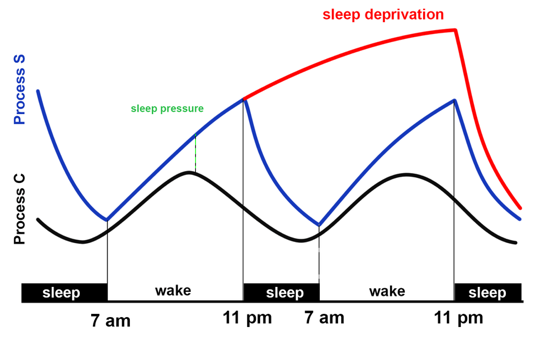Caffeine: A Necessary Stimulant or an Emerging Dependency?
Written on
Chapter 1: Understanding Caffeine
Caffeine is a widely consumed stimulant found in coffee, tea, and chocolate, favored by countless individuals globally for its invigorating effects. While many enjoy it for its ability to enhance alertness and foster social interactions, there is a growing concern regarding dependency. This article seeks to provide insights into how caffeine influences the human body.
Section 1.1: A Brief History of Caffeine
The earliest documented use of coffee dates back to a 15th-century Yemeni named Ahmed al-Ghaffer, who utilized it to remain awake during religious observances. However, legends trace back to 9th-century Ethiopia, where a goatherd named Kaldi observed his goats displaying heightened energy after consuming coffee beans. He subsequently presented these beans to a monk, leading to the first brewed coffee.

In contemporary society, coffee is a morning staple for its energizing attributes, with numerous varieties offering distinct aromas and flavors. Similarly, tea has a long history, with evidence of its use dating back to 141 BC in the tomb of Chinese Emperor Liu Qi, valued for its health benefits, particularly in digestion and detoxification. Today, tea serves as a social connector in many cultures, with various types ranging from English tea to Indian chai and Chinese green tea.
Section 1.2: Mechanism of Caffeine
Caffeine functions as a psychoactive compound by inhibiting adenosine receptors—critical components that regulate sleep and alertness. Adenosine, a naturally occurring substance, accumulates in the brain during wakefulness, signaling fatigue as levels rise.
Humans possess a circadian rhythm, influenced by light exposure, which helps regulate sleep patterns and even hunger cues. As the day progresses, adenosine levels increase, leading to feelings of sleepiness. Caffeine counteracts this by blocking adenosine, allowing individuals to remain awake and alert longer. However, adequate sleep is essential, as insufficient rest can lead to persistent fatigue regardless of caffeine intake.

Section 1.3: Is Caffeine Addictive?
Regular use of psychoactive substances can foster dependency, and caffeine is no exception. Many individuals rely on their morning coffee to enhance focus; skipping this ritual can lead to feelings of fatigue and a strong craving for caffeine, which can signify a dependency.
Research published in 2007 by the National Library of Medicine indicates that caffeine enhances dopaminergic activity by mitigating the adverse effects of adenosine. Additional studies suggest that the metabolite paraxanthine, produced from caffeine, boosts dopamine levels—similar to other addictive substances like cocaine. This dopamine release contributes to feelings of happiness and may lead to dependency.
Chronic caffeine consumption increases the number of adenosine receptors, making the body more sensitive to its effects. Consequently, withdrawal symptoms can occur during periods of abstinence, illustrating the challenges of breaking a caffeine habit.
Chapter 2: The Pros and Cons of Caffeine
Positive Effects of Caffeine
Caffeine stands as the most widely used psychoactive substance globally, with people consuming it for its ability to boost alertness. Studies reveal that even a modest 75-mg serving can enhance attention, while higher doses (160-600 mg) can improve cognitive functions such as reasoning and memory. Notably, research from Johns Hopkins University demonstrated that caffeine can enhance memory recall for up to 24 hours after intake.
Furthermore, caffeine has been shown to improve athletic performance, particularly in high-intensity training. A study published in the International Journal of Sport Nutrition and Exercise indicated that elite athletes experienced a significant performance boost after consuming caffeine.
Caffeine also boasts antioxidant properties, including hydrocinnamic acids, which help protect vital bodily functions. A diet rich in antioxidants may lower the risk of heart disease and other nutrition-related conditions.
Negative Effects of Caffeine
Despite its benefits, caffeine abuse is becoming increasingly prevalent, with recommendations from the FDA suggesting a maximum of 400 mg (about four cups of coffee) per day. However, individual factors such as pregnancy and lifestyle can influence this threshold.
Long-term caffeine use can lead to dependency, and withdrawal symptoms such as headaches may occur. Caffeine constricts blood vessels around the brain, and when consumption stops, the vessels widen, increasing blood flow and pressure, which can trigger headaches that may persist for weeks.
Excessive caffeine intake can also cause increased heart rates and altered heart rhythms, potentially leading to serious health issues under extreme conditions. Additionally, high consumption is linked to frequent urination, as evidenced by studies indicating that individuals consuming 2 mg per pound of body weight daily experienced significant urgency.
Conclusion
While caffeine is generally recognized as safe by researchers, the increasing prevalence of dependency is concerning. Coffee and tea remain beloved beverages worldwide, and understanding their effects on the body is essential for informed consumption. This article arose from personal curiosity about caffeine habits and its impact on health.